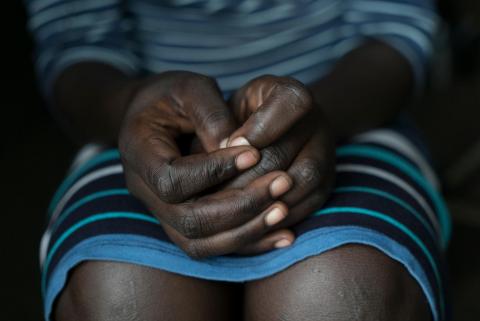Sexual violence, teenage motherhood: A silent social pandemic in slums

Some of the victims are receiving psychosocial support from shelter homes. PHOTO | NET
What you need to know:
- The rising levels of sexual and gender-based violence, teenage pregnancies and teen motherhood are a silent pandemic that endangers not only the current but also the social fabric of the future generation.
Well, well, well! If you have not visited a slum community before, you ought to do so. A week ago, exactly on the February 24, 2024, a team of young female social researchers and I, identifying under YOHEP Uganda took a working community visit through Katanga slum and it was a reflective and learning moment for us.
This was one of the planned community engagement activities that YOHEP (You Have the Potential), a not-for-profit youth-led initiative has been doing since 2022.
Despite lying in between two national iconic affluent institutions, Mulago National Referral Hospital in the east and Makerere University in the west, a walk-through Katanga Slum exhibits a ‘sick’ society, one at the margins of urban development with teenage motherhood coming off as a silent social pandemic that subconsciously eats away tomorrow’s generation.
On this particular visit, we had an intention of donating items like clothes and shoes collected from our circles to the households in the slum, especially the families with teenage mothers. Working with adolescent girls and teenage mothers in slums, raising their awareness about sexual violence and ways of navigating social challenges in slums, is one of our core roles.
Our visit was made even more exciting when we were joined by a team of Third Year students from Gender Studies at Makerere University, who had been tasked to learn from slum communities on how this particular environment produces unique forms of male behaviour, practices and identities.
You will agree with us that a slum community presents with very complex and diverse needy categories of the population.
Despite this dire need, our focus, as YOHEP, on teenage mothers was because this category comes off with unique vulnerabilities given that most of them are children who quickly transiting into adult motherhood, with many of them not even knowing who the fathers of their children are since these pregnancies are out of rape and other forms of sexual abuse.
Equally, others are often neglected by men who impregnate them. Because of the age at which they get pregnant, almost all of them do not have means of livelihood, can hardly make some money and often slide into unpaid care responsibilities that limit their exposure to paid jobs. This situation can not only be dire, but is also cyclic, affecting generation after another.
The pervasive nature of sexual violence and its resulting teenage pregnancies and motherhood in the slums was appalling. We moved from a household-to-another with almost each having an idle teenager, or a young mother who was fit to be a child herself.
Majority of the teenage mothers we met ranged from 13-17 years of age. Stories shared with us indicated that majority of these had dropped out of school and the idle peer groups exposed them to sexual activity including countless cases of rape.
Along the teenage mothers, was also notable cocoons of needy young boys. The ‘boy child’ is by no means a new narrative to us today. There are many groups of young suspicious men in small groups, always on the lookout for goodies to snatch or even the next sexual prey. Our guide who doubled as a community leader, cautioned us to watch our phones and bags.
Even though we were able to share the little we had with the few teenage mothers that we met, this is not their priority need. Rather, the pressing need as observed and told to us is daily food, medical care and a safer sanitary environment.
While we were able to meet the clothing need of a few, this initiative is neither sustainable nor responding to the priority needs of the people in the slum communities. It will take the government which has a broader mandate, to rethink its approach to slum development.
While slums may be the unavoidable product of urban development, there are social concerns that government and civil society must address. The rising levels of sexual and gender-based violence, teenage pregnancies and teen motherhood are a silent pandemic that endangers not only the current but also the social fabric of the future generation.
This is a call to the government, civil society organisations and other stakeholders, to think through and see how slum areas like Katanga a better place can be to live by ensuring adequate social service delivery system.
Elizabeth Atuheire, Founder and Team leader, YOHEP Uganda.




